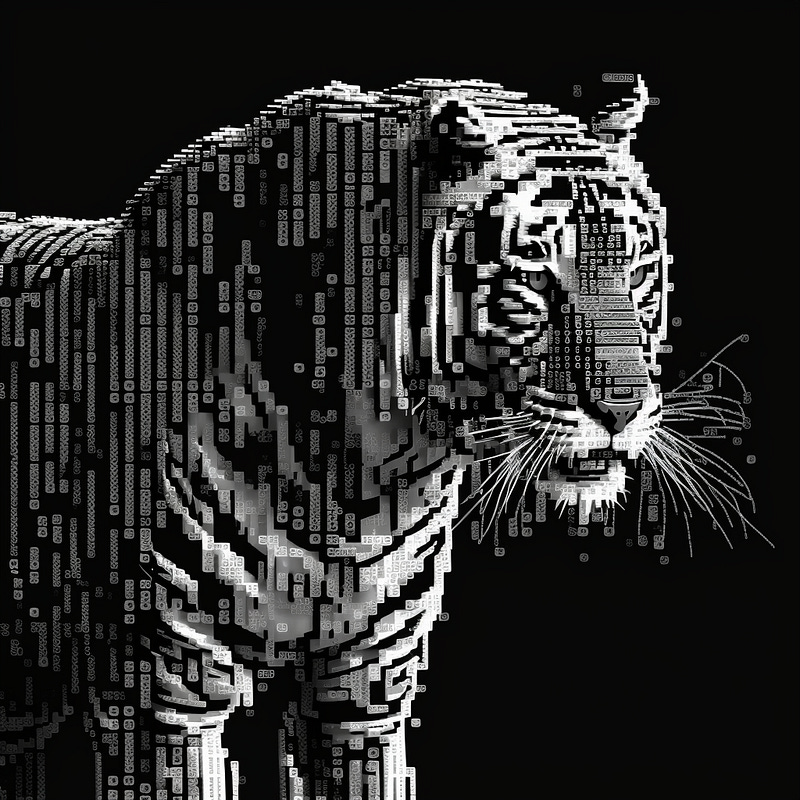6 Truths about ChatGPT
When I read stories about ChatGPT, I often shake my head. The media hype surrounding this particular AI technology indicates a sea change…
When I read stories about ChatGPT, I often shake my head. The media hype surrounding this particular AI technology indicates a sea change in the technology landscape. However, the trade and business media often underreport, dramatize, and miss details.
Once you dive into ChatGPT as an individual implementation, you come to understand it simply as today’s most visible form of generative AI. In effect, it is a harbinger of change but that may be its primary value.
Further, research and experience reveal several obvious truths about ChatGPT and what it represents. Here are my six major observations tracking the ChatGPT media hype wave.
1) ChatGPT is not very good at creative writing
The media hype around this tool’s writing exceeds its capability, just showing you how susceptible the media is (again) to PR stories and hype cycles. I am just going to agree with the writing community that anyone who takes ChatGPT copy and uses it verbatim in a cut-and-paste manner is a fool. And the copy will expose them as a fool in short order, not just in its formulaic style, but also its lack of accuracy.
Every generative AI tool I have used to create copy has had similar problems (see my review of other current AI writing tools here). Generative AI is just not all the way there yet from a strong copywriting standpoint. Yet is the operative word here, it would be unwise to dismiss this toolset as it already provides many writers with editorial assistance.
Check your copy and verify information with generative writing AI tools in their current iteration. Doubling up on sources is especially necessary with ChatGPT, which does not detail how it derives outputs.
2) ChatGPT is better than the writing community thinks
As noted above, for writers to dismiss ChatGPT outright is to deny that the sun rises. This is not a finite matter. The tool has provided positive impacts for hundreds of thousands at this point.
ChatGPT is a good summarization tool, and frankly, it has produced well for specific use cases like real estate listings or trivia questions. It’s actually pretty good at writing and correcting code for those who don’t care about uploading their intellectual property into a public AI.
How will it work in search? We’re about to find out. We’re just beginning to understand the value of ChatGPT and its best use cases. It will take further user experimentation to truly understand the strength of this tool.
3) ChatGPT is just one execution of the GPT 3.5 algorithm
ChatGPT is an OpenAI execution, a trained AI model, made from the GPT 3.5 algorithm. If you think this is the only game in town you are sorely mistaken. Others have and are using the algorithm, and there are competing algorithms, too, such as Google’s BARD.
Know that the ChatGPT AI is not the algorithm. Other tools are and will use other implementations of this type of algorithm in current and future versions.
Really, if you think ChatGPT is good, check back in three years when we are at version 5.0 (and the competition has also advanced). Future AI executions will be far superior. We’re just getting started.
4) Yes, public generative AI needs regulation
Numerous ethical issues have been raised about ChatGPT, including plagiarism, uploading intellectual property, blind parroting of old outdated information, and lack of clarity on training. These concerns seem to multiply every week, bringing criticism and increasing negative sentiment about the technology.
The rise of ChatGPT-related fear coincides with the rise of regulatory efforts in Europe and guidance from the White House. ChatGPT creator OpenAI is quick to acknowledge the issues, outright welcoming government regulation in our new AI era.
Regulation might be inevitable, but will it be enough to prevent human abuses of AI? Perhaps we can acknowledge the good intentions of social media and the incredible problems that social networking commercialization through algorithms has created. Well-intended regulation won’t be enough to stop the wheel of big business.
5) The era of the AI-inspired creative has arrived

If there is one thing that ChatGPT has made clear, it’s that generative AI and other AI technologies like machine learning and computer vision will continue impacting business. Those in marketing and creative businesses need to face this brave new world.
I have been writing about AI and its impact on marketing periodically for five years now. Perhaps the most recent and prescient article was when I detailed how creatives would need to evolve and embrace AI tools, effectively becoming AI-inspired.
Now there are whole droves of writers, creative directors, graphic designers, photographers, and videographers who are facing the new reality presented by ChatGPT: Some AI tools will replace many parts of their daily work, usually the most rote tasks. Those creatives who insist on resisting will soon find themselves outperformed and outpaced by their peers who chose to become AI-inspired.
There is still time to embrace the coming AI tools, but time is running short. My advice? Start now. Knowing how to work with AI to generate creative outputs will be a key differentiator between those who succeed and those who will be forced to retrain or worse find new careers.
Because I have been using Photoshop and Lightroom for more than a decade, their new AI enhancements and evolving toolset is never a surprise for me. They are just new tools that make my photo editing that much quicker and easier. I don’t always use full functionality, just the parts that make my images better to meet my style. This is the right balance of using AI to inspire rather than to dictate work.
6) The best part about ChatGPT: It opened our minds
I do want to reiterate that ChatGPT is a zeitgeist moment for all AI technologies in the public eye. Now hundreds of thousands, even millions of people are imagining what can be accomplished with AI, much like Twitter did with social networking way back in 2007.
For example, we know that generative AI can really help us communicate faster, quicker, and sometimes better. Perhaps not all outcomes are achievable now with all of their flaws but certainly, we know the possibilities are endless and feasible with further evolutions and more and better training. This can be said of all forms of AI.
We are still very early in the sea change brought about by AI technology, really the dawn of an era. One can liken it to the rise of the World Wide Web in the 90s. If we could only see what incredible things awaited us 30 years down the road.
Hopefully, conversational writing bots will fare better than Twitter has.





